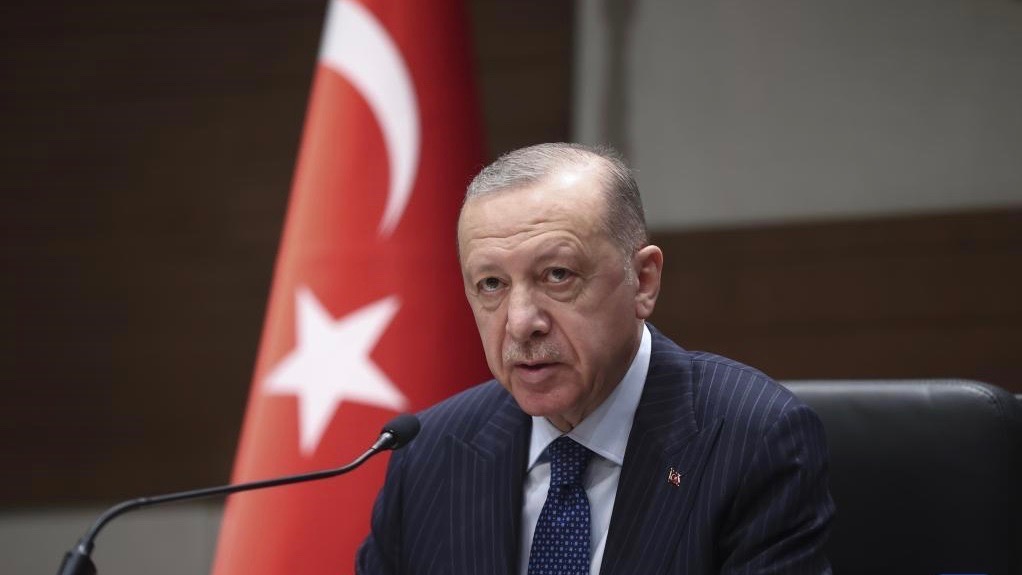Turkish President Recep Tayyip Erdoğan has announced May 14 as the date for parliamentary and presidential elections in the country. He made the announcement on Saturday, January 21, at a rally in the northwestern province of Bursa.
Erdoğan’s announcement advances the national elections by almost a month. They had earlier been scheduled for June 24.
Erdoğan’s Justice and Development Party (AKP) and its ally the Nationalist Movement Party (MHP) will contest the elections together with other smaller allies. The AKP and MHP alliance had 344 of the 600 seats in the Grand National Assembly of Turkey, or Turkish parliament.
The Republican Peoples’ Party (CHP), which has stitched together an alliance of the six main opposition parties, will be its main challenger. In the last parliamentary elections, it had secured 146 legislators. The pro-Kurdish, left-wing Peoples Democratic Party (HDP), with 67 seats, was the third-largest party.
Erdoğan received more than 52% of the popular vote in the presidential elections in 2018 and defeated his nearest rival, Muharrem İnce, by a comfortable margin. İnce won over 30% of the popular vote.
Erdoğan said at the event in Bursa that the first phase of the national elections will be held on May 14 and an official announcement of the same will be made in March.
As per Turkish electoral rules, in case no candidate is able to secure the required 50% of the popular vote, a second round of the elections will be held on May 28.
Erdoğan has been in power in Turkey since 2003. He became the president in 2014. Constitutional amendments in 2017 created a presidential system in the country by abolishing the post of the prime minister and giving more powers to the president. This was approved in a constitutional referendum in April 2017.
Following a failed coup attempt, President Erdoğan has been accused of using authoritarian methods to silence the opposition. He has also been accused of unleashing political persecution against the political parties and candidates considered popular and potential challengers to his rule.
Major issues
The upcoming elections are being considered the toughest for Erdoğan and his AKP so far, as the country is facing a prolonged phase of high inflation and economic crisis, which has created a severe cost of living crisis.
A majority of the working population is struggling to make ends meet, with high inflation eroding real wages in the country. This has renewed the trade union struggle. Trade unions have been pushing for wage law reforms and higher wages.
Keeping the elections in mind, the Erdoğan government has raised the minimum wages in the country by almost 100%. However, trade unions are not satisfied.
Some opposition parties, especially from the right-wing, have raised the issue of the over three million Syrian refugees in the country and questioned Erdoğan’s regional and foreign policies. Since the AKP had championed the immigration earlier, and Erdoğan’s Syria policy has been seen as the primary reason for the high number of refugees, this may have a significant impact on the elections.
Turkey has also seen several movements related to women’s rights in the last few years, since the Erdoğan government decided to withdraw from the Istanbul convention.
Meanwhile, while the CHP has managed to draw six opposition parties into an alliance for the elections, this coalition has not yet been able to decide on a presidential candidate.
The polls so far indicate a slight advantage for the opposition, but the position of the HDP, which is not a part of the alliance yet, has been seen by some as crucial for the possibility of an opposition victory.





